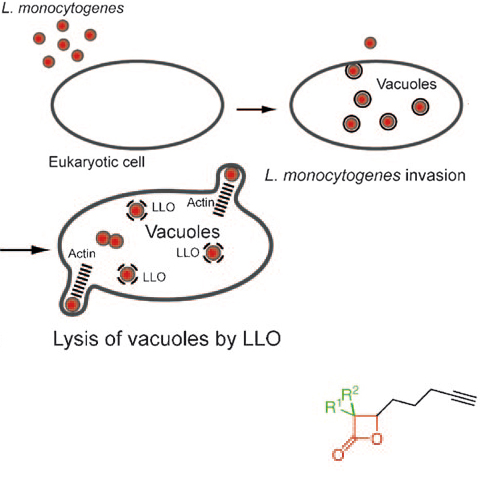beta-Lactones Decrease the Intracellular Virulence of Listeria monocytogenes in
04-Aug-2009
The increasing emergence of multiresistant bacterial pathogens represents a dramatic global health problem. One major reason for this dilemma is the high selective pressure that is exerted on bacteria by classical antibiotic therapies, leading to a steady increase in the number of strains resistant to the majority of all currently available antibiotic drugs. In addition, only a limited number of essential molecular targets in bacteria such as cell wall and protein biosynthesis have been systematically exploited by a small number of antibiotic scaffolds. It is therefore a major goal to identify novel targets and corresponding drugs that are either important for bacterial viability or essential for their pathogenicity and virulence.[1, 2] Inhibition of virulence-associated targets would not necessarily kill bacteria, but disarm their pathogenic weapon repertoire. This could then lead to the elimination of disarmed bacteria by the host immune response and could additionally exert less selective pressure.[3, 4]











